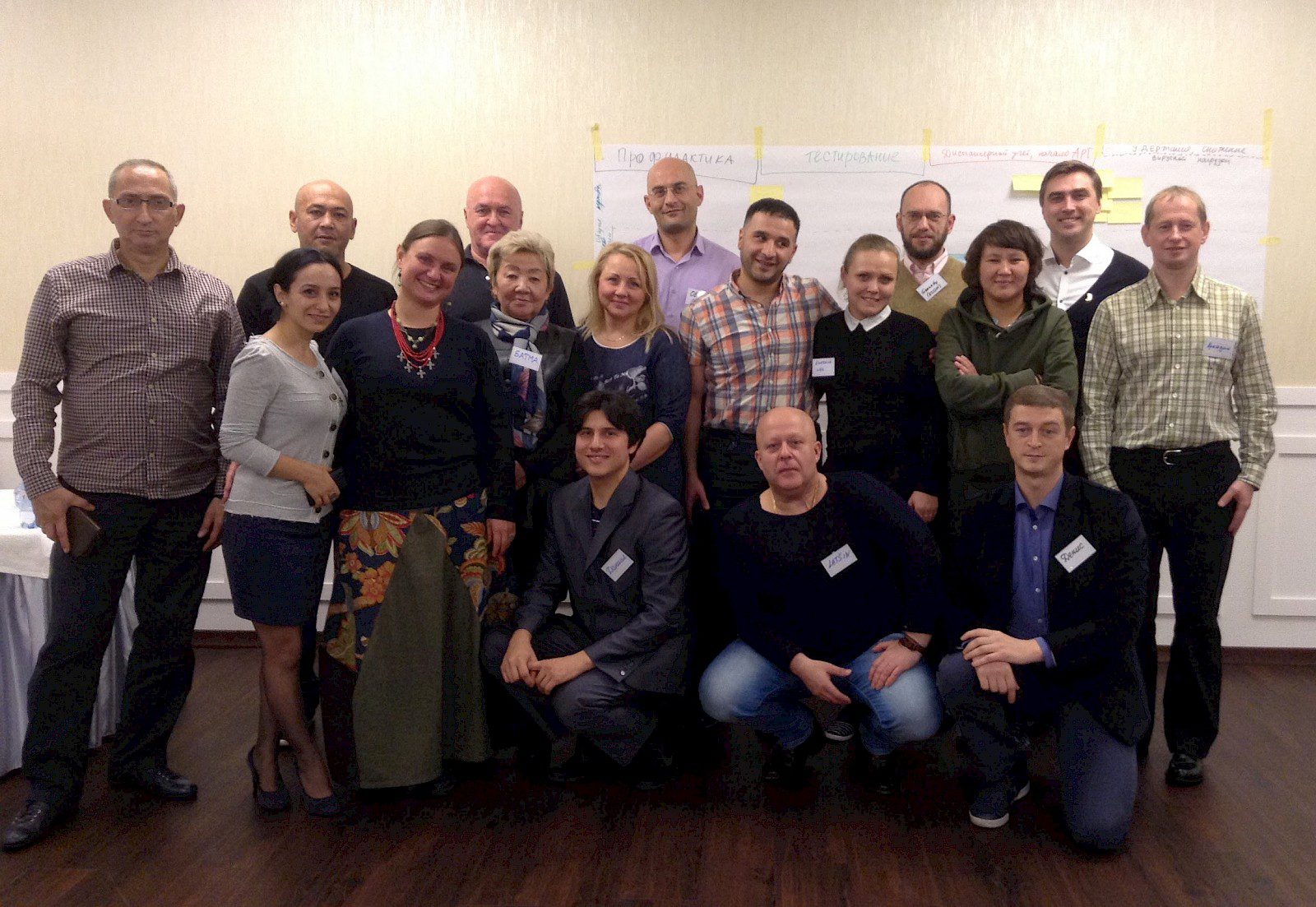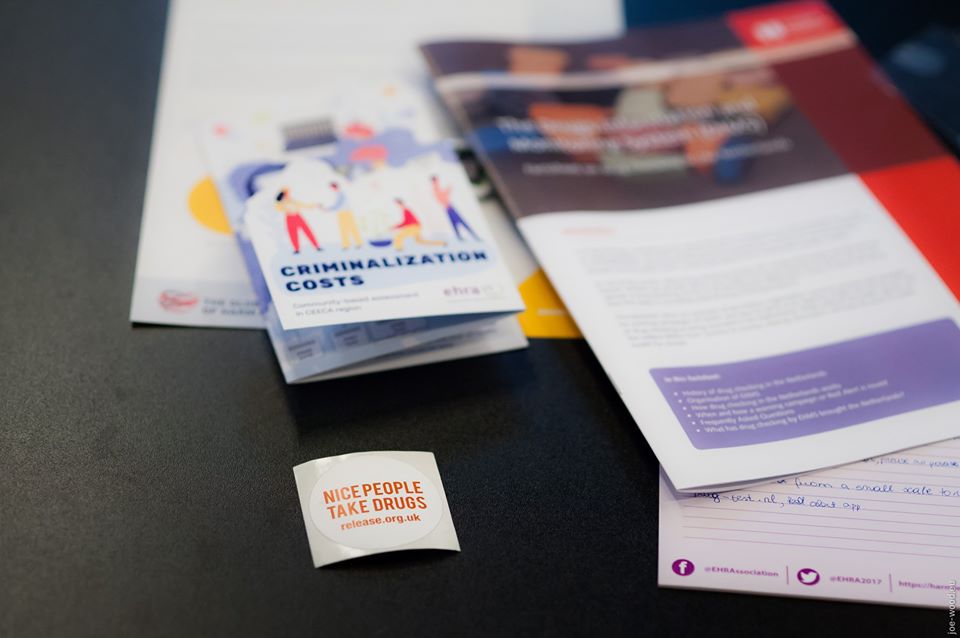Consortium of Networks of People who Use Drugs
The Consortium of People Who Use Drugs is a global consortium working to support the organizing and advocacy of people who use drugs, promote the human rights of people who use drugs, challenge criminalization of and discrimination against people who use drugs, and increase resources for and access to services for people who use drugs.
| Grantee type: Global Consortium |
| Grant: $1,920,000 |
| Grant period: 2019-2021 |
| Lead organization: International Network of People Who Use Drugs (INPUD) |
Partner organizations:
|
The consortium includes five networks: International Network of People who use Drugs (INPUD), the Asian Network of People who use Drugs (ANPUD), the Eurasian Network of People who use Drugs (ENPUD), the South African Network of People who use Drugs (SANPUD), and the African Network of People who use Drugs (AfricaNPUD).
- People who use drugs face systematic human rights violations throughout the world, including discrimination, criminalization, a lack of protection by police, and violence and abuse from police. This potential for discrimination, violence, and other human rights violations creates barriers to access to health services.
- People who use drugs are at higher risk of HIV and other health issues (such as TB, hepatitis or overdose) because of unsafe injection practices and other high-risk behaviors associated with drug use, but also because of neglect and inaccessibility of health services and harm reduction services.
- People who inject drugs account for more than one third of new HIV infections in Eastern Europe and Central Asia (EECA) and in the Middle East and North Africa (MENA) region, and significant parts of HIV epidemics in parts of Asia and the Pacific, Latin America and sub-Saharan Africa.
- Advocates have influenced some positive changes in many countries and regions, including countries of North America, Europe, and Oceania. However, harm reduction advocacy and advancement of humane drug policy approaches are being made increasingly difficult by the rise of nationalist conservative politics in countries such as Bangladesh, Brazil, Indonesia, Nigeria, and Philippines.
- People who use drugs have important direct experience of their own health needs and barriers to health services. People who use drugs need support to organize and advocate in their own countries and internationally to improve human rights environments, improve service accessibility, and improve efficiency and effectiveness of funding for health and human rights.


RCF funding 2019-2021
The Consortium of People Who Use Drugs received US$ 1.9 million in funding from the Robert Carr Fund during 2019-2021, continuing a six-year history of steady RCF investments in networks of people who use drugs. This funding was allocated to both core and strategic program costs across all major regions of the world to help build network capacity and to support globally aligned action.
Geographic coverage
The Consortium of People Who Use Drugs is a global consortium, convening and supporting organizations and individuals in all regions of the world. Key countries for organizing and capacity-building included India, Indonesia, Nepal, Philippines and Thailand in Asia, and Georgia in Eastern Europe and Central Asia, and Kenya, Tanzania, and South Africa in Africa.
Population coverage
The Consortium of People Who Use Drugs serves and represents people who use drugs.
Activities 2019-2021
With RCF funding in 2019-2021, the Consortium will implement the following activities:
- All five networks will use RCF funding to invest in build representative governing Boards and organizational management capacity, coalition structures and management, constituent all-general meetings, strategic planning and provision of capacity trainings for Board members, staff and volunteers. Focused support will help AfricaNPUD and ENPUD to become legally registered and have completed, approved and operationalized governance documents, strategic plans and financial and human resource policies and protocols.
- All five consortium networks will also support people who use drugs to organize and engage in advocacy at a country level. Networks will provide small grants, trainings, materials, and mentoring to conduct campaigns such as Support Don’t Punish campaigns and to engage in processes sponsored by governments, UN agencies and the Global Fund. Networks will also develop regional response teams to respond to human rights violations against people who use drugs,
- The consortium will also fund people to present and advocate at international meetings, including at the International Harm Reduction Conference, International Drug Policy Reform Conference, Commission of Narcotic Drugs (CND), Convention on the Elimination of All Forms of Discrimination against Women (CEDAW), and meetings and committees of UNODC and the Global Fund.
Intended results 2019-2021
The intended results from this work during 2019-2021 will include:
- Network strength and influence: Strengthening of the AfricaNPUD and ENPUD regional networks and of the global organizing and advocacy of people who use drugs across all regions to promote the human rights of people who use drugs, challenge criminalization of and discrimination against people who use drugs, and increase resources for and access to services for people who use drugs.
- Human rights: Development of regional response teams to respond to human rights violations against people who use drugs, and continuation of campaigns such as the Support Don’t Punish campaigns.
- Access to services: Support for people who use drugs to organize and engage in advocacy at a country level about health services, including through country and Global Fund processes.